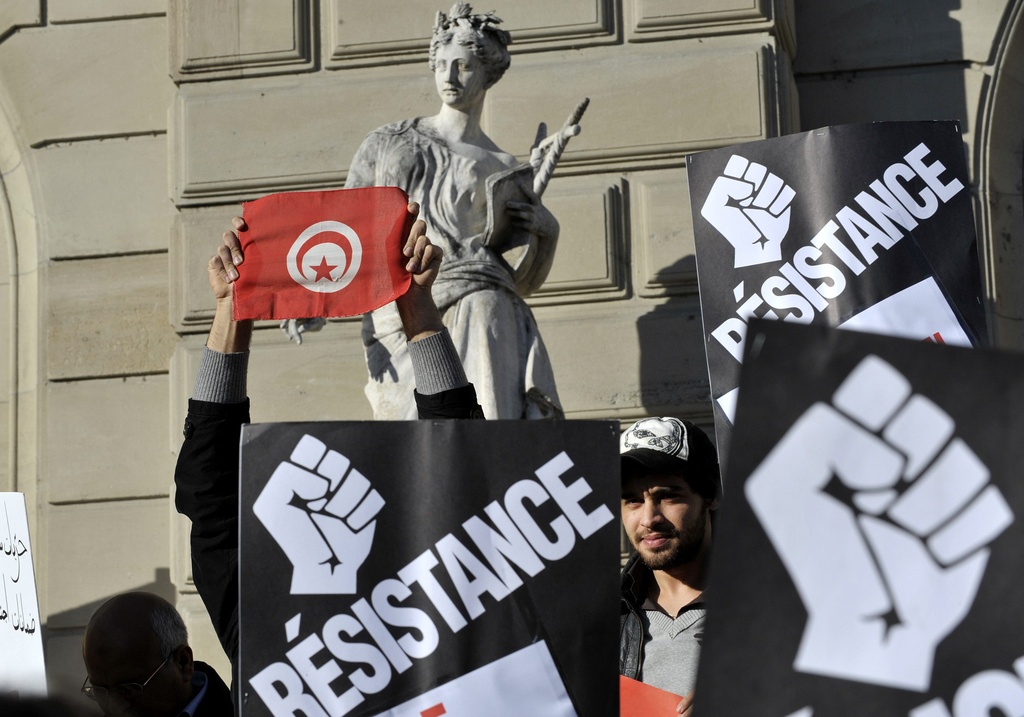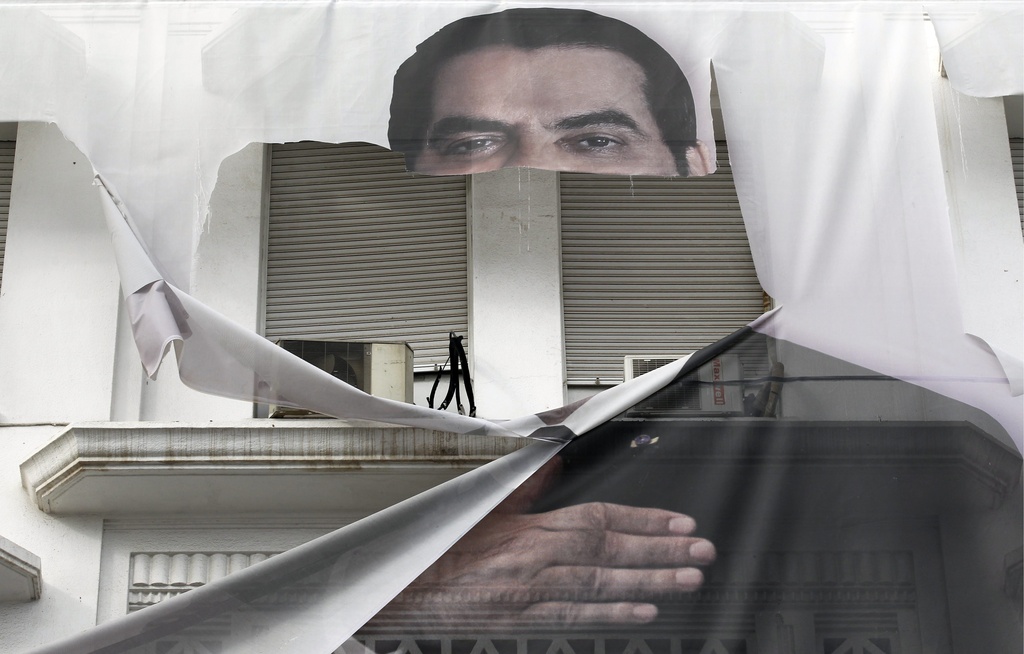Freezing of presidential accounts welcomed

Switzerland has frozen assets connected to deposed Tunisian president Zine al-Abidine Ben Ali and Ivory Coast leader Laurent Gbagbo, with immediate effect.
A sensible decision, according to international corruption expert Mark Pieth, although he tells swissinfo.ch that illicit funds may already have been moved elsewhere.
Swiss Foreign Minister Micheline Calmy-Rey announced the cabinet’s decision at a news conference in Bern on Wednesday.
Calmy-Rey said the freezing of assets would apply for a three-year period to allow time for the countries concerned to initiate criminal proceedings against the former regimes, which is a precondition to applying to Switzerland for judicial aid and ultimately the return of stolen funds.
The foreign minister said Switzerland would encourage Tunisia and Ivory Coast to take these steps. Gbagbo of Ivory Coast is clinging to power despite having lost a presidential election in November. Ben Ali left Tunisia on January 14 after massive public protests against his regime.
swissinfo.ch: What is your assessment of the government’s decision?
Mark Pieth: It can be assumed that either there is no money there or that the banks have already blocked it internally if they discovered it. However this is not definite and today’s decision ensures the matter is dealt with consistently right across the banking sector. It had to happen quickly because otherwise there is the risk that the money would be withdrawn.
swissinfo.ch: Days have passed since the events in Tunisia grabbed the headlines; why did the Swiss not act sooner?
M.P.: This regime was considered tolerable for a long time although it was always known to be problematic and corrupt. It found support in France, the United States and more recently the European Union. We might have come to the conclusion long ago that the regime was problematic but that did not happen on a political level. Only now with the departure of the president has it been recognised that these funds should be blocked.
swissinfo.ch: How can a bank or state decide that a president is corrupt and his money illicit?
M.P.: A bank has to take the trouble to analyse politically exposed persons or PEPs. That doesn’t mean you can’t open accounts for politicians at all but banks have to carefully consider what risks are being run by taking on such clients.
The other level that is very often a concern in the banking sector is that it is not necessarily possible to recognise who the money belongs to. It is relatively easy to conceal funds in such a way that it appears to be a perfectly above board investment and it can only be established after in-depth research that is belongs to a so-called PEP.
So the problem here is twofold: Firstly does this involve a PEP who is so dangerous the bank should not even accept the funds and secondly can the bank even establish that the money belongs to a PEP.
swissinfo.ch: What has Switzerland done to address this situation?
M.P.: Switzerland is lately in an improved situation because it has introduced a new law intended to help so-called failed states that are not in the position judicially to initiate the necessary legal proceedings to claim back stolen money. I doubt that Tunisia is such a state. The country has a functioning justice system although it will take some time now to sort out faction fighting, etc. That is the reason why Switzerland has now frozen the accounts in this way. It buys time and the time can be used by the justice system to submit some kind of judicial aid request and probably follow the regular judicial aid path.
swissinfo.ch: Will three years suffice for Tunisia?
M.P: I assume that after the three years the possibility will be there to extend the time limit if the proceedings have not advanced far enough but are underway.
swissinfo.ch: How do things stand now with Switzerland’s image?
M.P.: I would be surprised if Ben Ali and his clan still had money in Switzerland. If I were him, I would deposit the money in France or the Emirates. It would not be too smart to come to Switzerland.
An open public debate is taking place in Switzerland over these illicit funds and if a dictator is paying attention he will either have already diverted his money elsewhere or not have come here in the first place. Professionals in this field react very quickly.
The image of Switzerland as a safe haven for illegally-acquired money is no longer true for criminal funds. As for tax, that is another story.
Mark Pieth is a professor of criminal law at Basel University, the chairman of the OECD Working Group on Bribery in International Business Transactions, a member of the Swiss Federal Gaming Commission, and the chairman of the board of the Basel Institute on Governance.
Formerly a member of the Independent Inquiry Committee into the Iraq Oil-for-Food Programme, the Financial Action Task Force on Money Laundering and head of section of Economic and Organised Crime at the Swiss justice ministry.
The new law on returning illicit dictator funds deposited in Swiss banks was approved by parliament last year.
It was felt there was a need to enshrine such procedures in law as a result of the often weak legal system in states requesting the return of assets.
In some cases Switzerland was forced to hand the illicit assets back to dictators’ families instead of the state, as was the case in 2009 with funds deposited in Switzerland by former Zairean leader Mobutu Sese Seko.
Under the law the cabinet can block contentious assets and will have up to ten years to launch action to confiscate the assets once they have been blocked.
The confiscation of assets must be declared by the Federal Administrative Court. Any decision to block funds can also be appealed through the court.
Once returned, the funds must be used to improve quality of life for the wider population, strengthen the judicial system and fight against crime.
(Adapted from German by Clare O’Dea)

In compliance with the JTI standards
More: SWI swissinfo.ch certified by the Journalism Trust Initiative













You can find an overview of ongoing debates with our journalists here . Please join us!
If you want to start a conversation about a topic raised in this article or want to report factual errors, email us at english@swissinfo.ch.